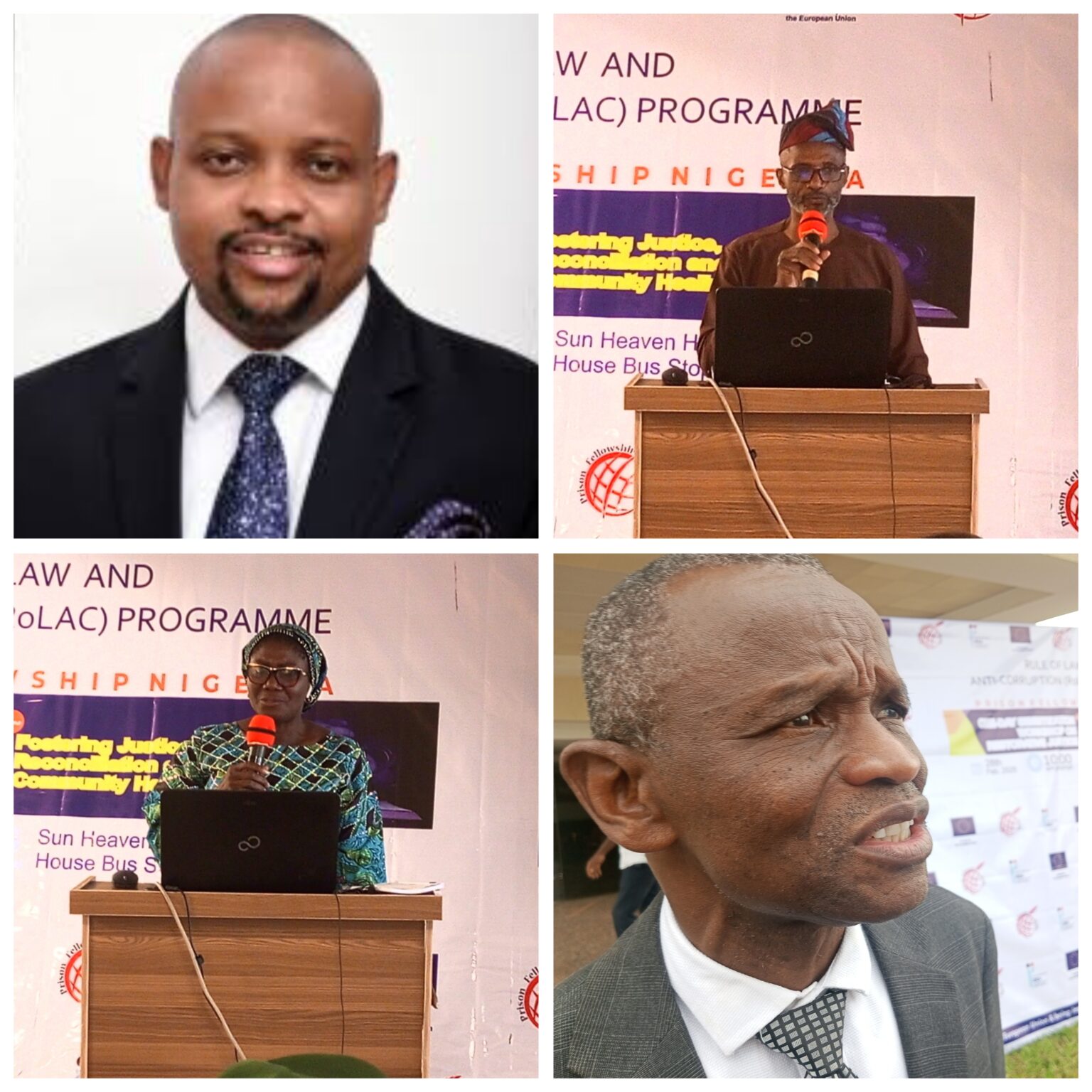Stakeholders and facilitators of the just concluded One-Day Sensitization Workshop on Restorative Justice in Abia state has emphasized that the sole objective of the partnering organizations is to positively permeate through the whole criminal justice system for the goal of having a paradigm shift in the justice system of Nigeria.
The well attended workshop held in Umuahia, Abia State Capital on Friday was powered by the European Union and had the Prison Fellowship Nigeria, Rule of Law and Anti-corruption (RoLAC) Programme, International Institute of Democracy and Electoral Assistance(IDEA) as stakeholders and facilitators.
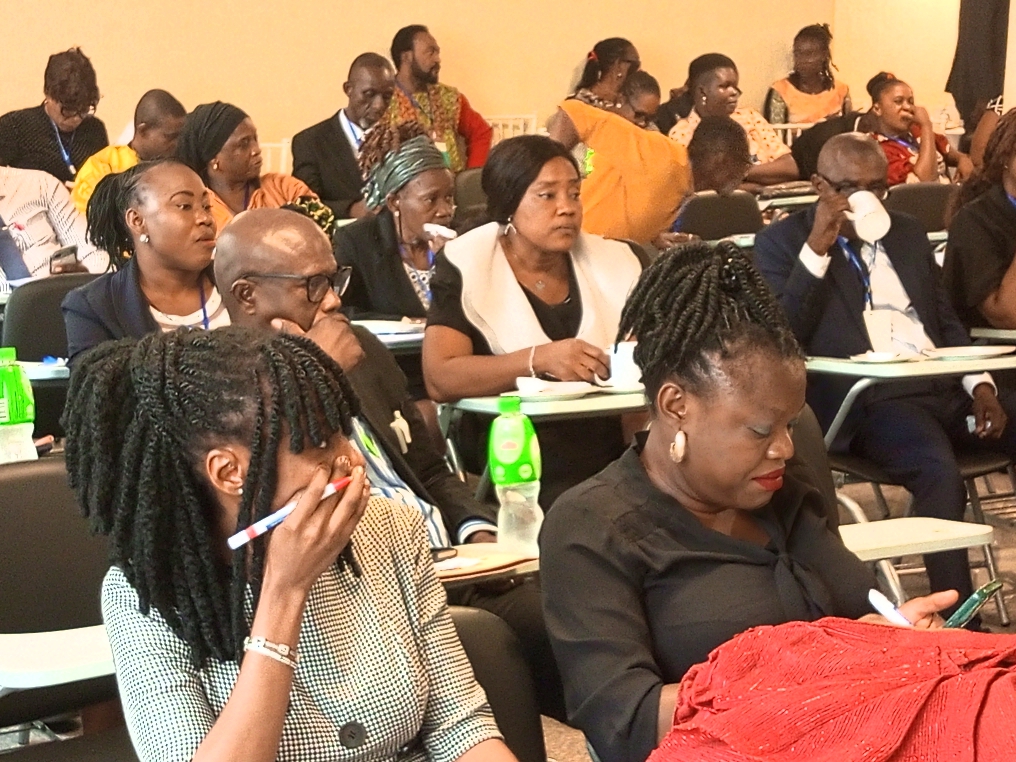
The theme of the event was; “Fostering Justice, Reconciliation and Community Healing”. The workshop had in attendance members of the judiciary, officers from security agencies such as the Police and Prisons, Journalists, Lawyers, Traditional Rulers etc.
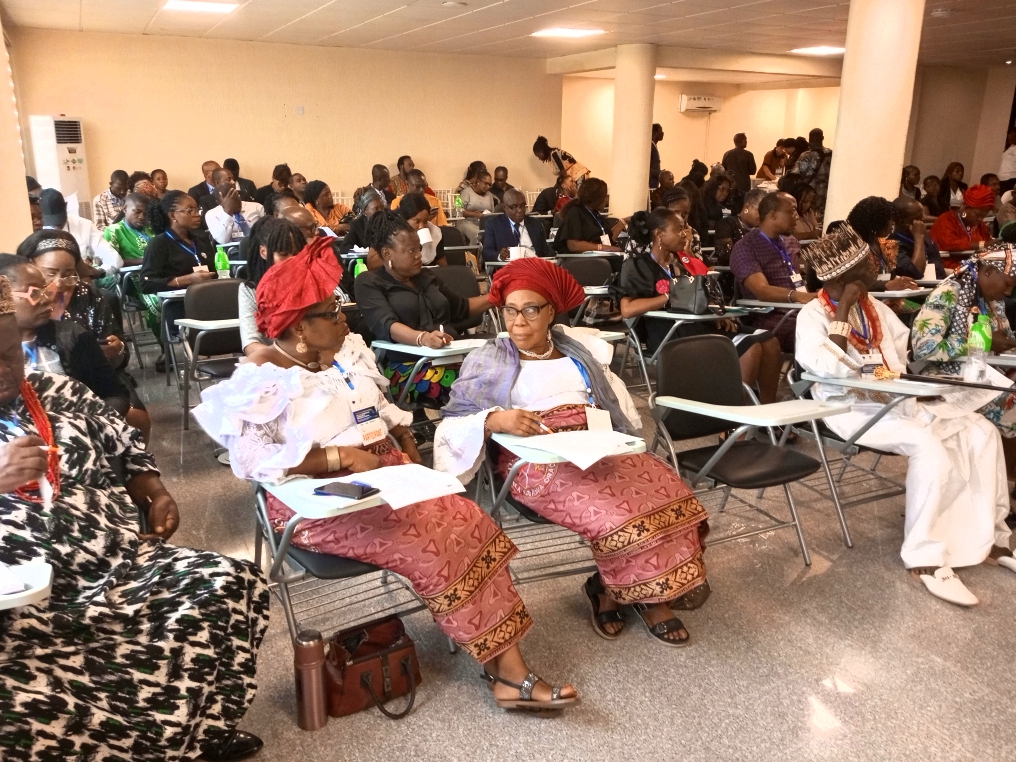
The workshop focused on ways of punishing offenders with minor offences instead of sending them to correctional centres (prisons) which will help in decongesting the prisons as well as healing, reconciliation and building societal harmony.
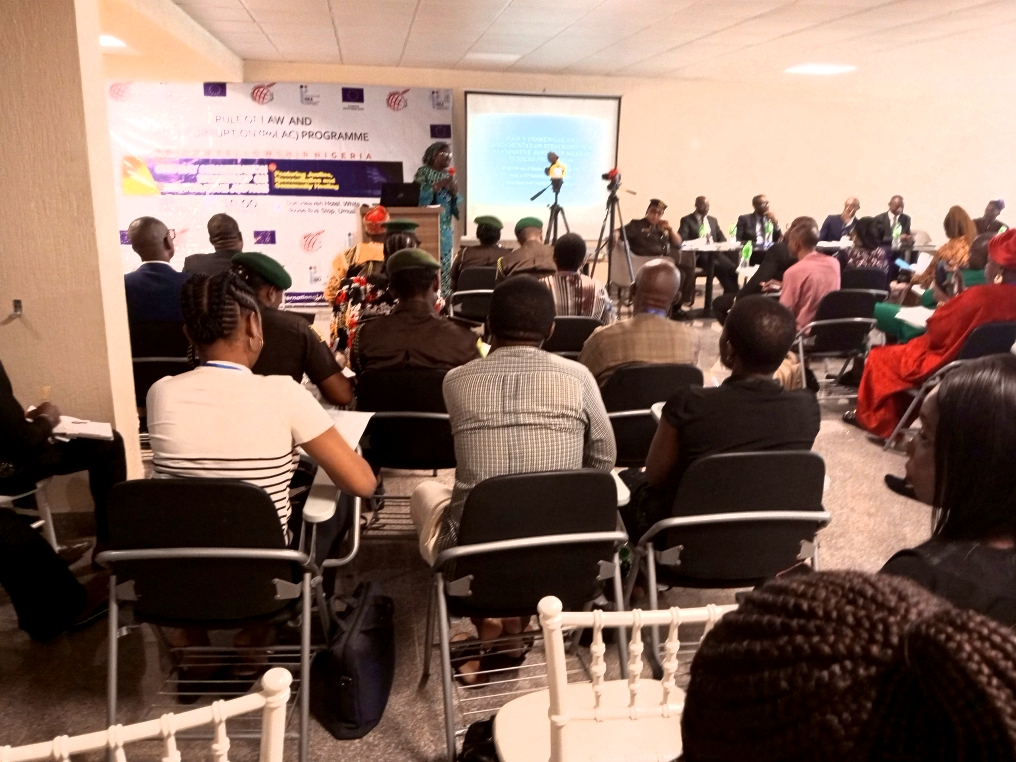
Peter Omenka the State Project Coordinator of Rule of Law and Anti Corruption (RoLAC)program in Abia in his address explained that the workshop is not an international NGO but an international organization handling Criminal Justice project that is funded by the European Union and being implemented in Nigeria by International Institute of Democracy and Electoral Assistance(IDEA).
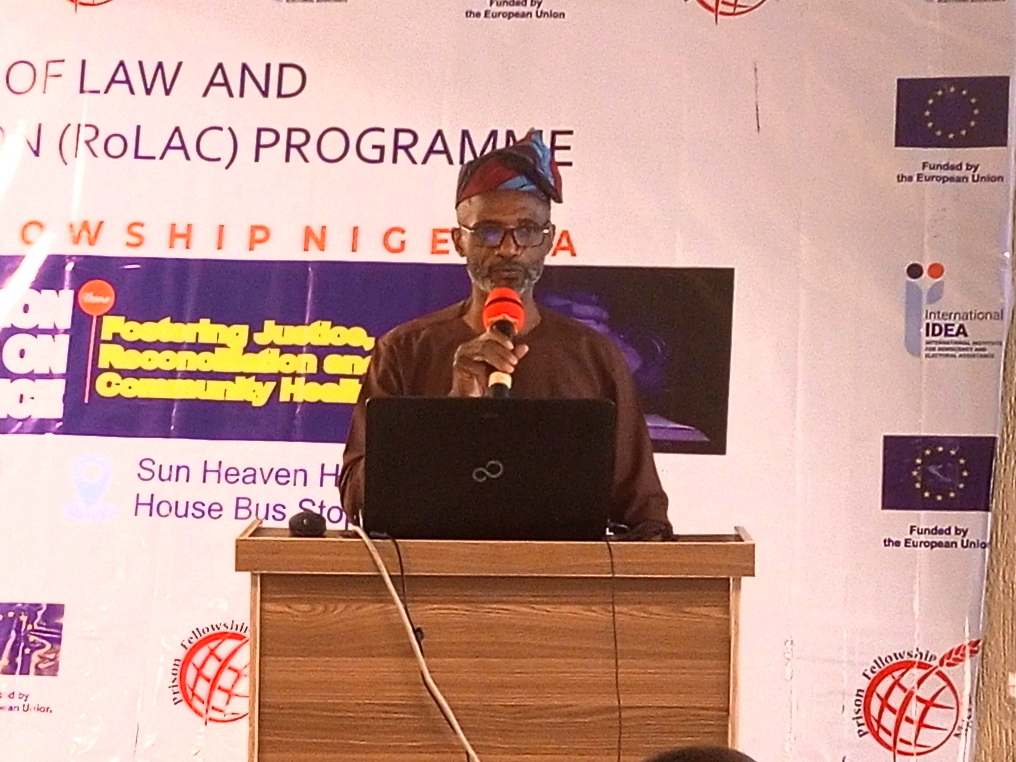
Mr. Omenka said that RoLAC is being implemented in 36 countries globally as the United Nations(UN) oversees the development process. While notifying that Nigeria is not a member of the institute, but a beneficiary of the good things the institute is doing across the world.
He also revealed RoLAC is working in seven states in Nigeria namely; Abia, Adamawa, Anambara, Edo, Kano, Lagos, Kano and FCT.
Mr. Omenka said “RoLAC contributes to the consolidating of the rule of law and electoral reforms in Nigeria. It is done in three different ways, first is by engaging through criminal justice reforms, supporting institutions so that they can be strategically and operationally effective to do what they are supposed to do and do it well.
“The project has a component that focuses on access to justice for women, children and persons with disability.
“Also a third component that works on anti corruption reforms ensuring that we have transparency and accountability in our system.”
Omenka however emphasized that the current government of Abia state is a very fertile ground for anti corruption reforms. And the aim is to educate citizens on how to use the tools to decongest the compact and complex system.
On his part during the workshop, the Attorney General and Commissioner for Justice in Abia State, Hon. Ikechukwu Uwanna explained that Restorative justice provides a paradigm shift, one that prioritizes healing, accountability and reintegration of offenders into the society in a meaningful and constructive way.

“For too long our justice system has focused on punishment as the ultimate response to crime; a person commits an offense he’s quickly arrested tried, convicted and sends to the correctional facilities and the case is closed at that point”. Hon. Ikechukwu Uwanna said.
Hon. Uwanna, also asked pertinent and rational submissions on why restorative Justice should be a way to go.
“What is the fate of the victim who lost a case and often felt unheard disbelieved and unsupported?
“What happens to the offender, who serves their time but returns to the society without true rehabilitation and in some cases worse than they left.
“What happens to our community where trust and social harmony are broken? These are the questions that led to the rebirth of restorative justice.
“Restorative justice keeps the victim, holding the offender truly accountable in a way that fosters change and strengthens our communities by promoting reconciliation”. Hon. Uwanna said.
Dr. Jacob Tsado, the Executive Director of Prison Fellowship Nigeria, a stakeholder in the workshop in a chat with newsmen said the organization is a non governmental organization which is involved in the rehabilitation, reinformation of people and victims as well as promote peace in communities.
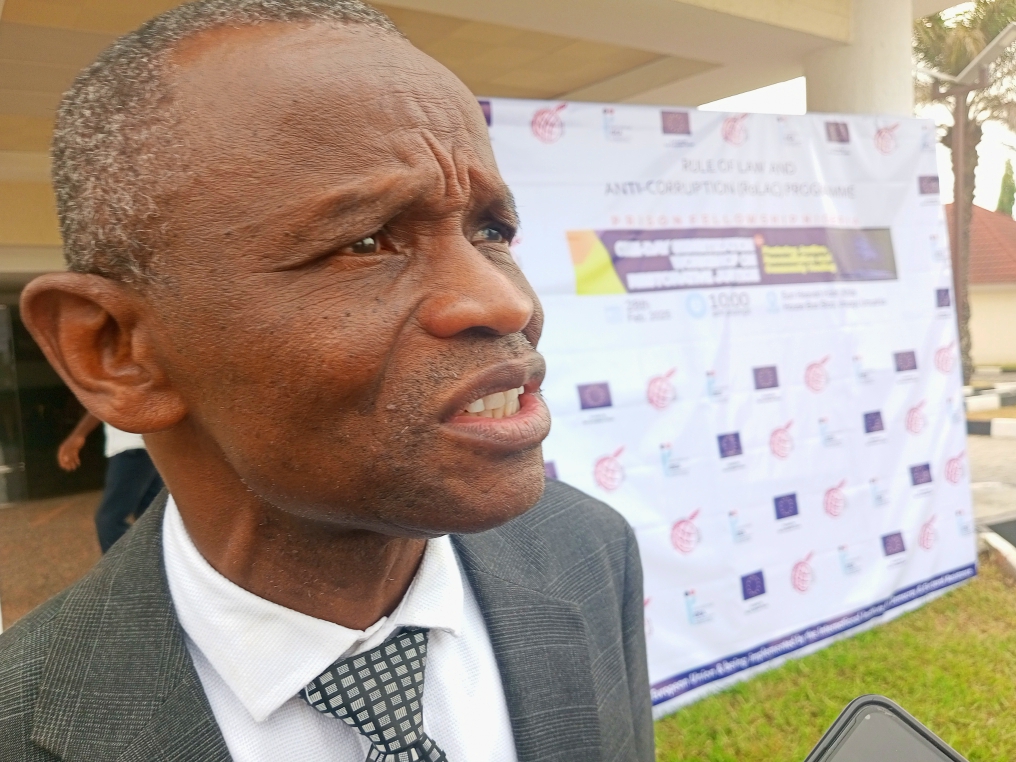
Dr. Tsado said the Prison Fellowship Nigeria tends to achieve the goal in collaboration with the Ministry of Justice with the scrutinized guidelines for application.
“Restorative Justice looks at the harm that has been caused by crime. It also looks at what harm has been caused, and how can that harm can be redressed in a way that the offender, the victim and the community will come back to a state of harmony.
“It differs from retributive justice that is focused mainly on punishment, yes, people need to take responsibility for their actions, but justice goes beyond taking responsibility, it also goes to healing, reconciliation and to building societal harmony and that is why we are pursuing restorative justice. Dr. Tsado said.
Dr. Tsado also revealed that efforts have been going on through conference sensitization which Lagos state has been a major partner.
He also revealed that the plan is to take the project everywhere so that justice can get to the grassroots without the necessity of paying huge money and suffer unnecessary loss.
On the level of success so far in the campaign, he said they have been involved in various programs to hit their agenda targets and one of the them is the “sycamore tree program” which helps offenders to think about the impact of their crimes.
“There have been instances where offenders change their plea, not because anybody compelled them but because they felt convinced from their hearts that they are more concerned about making amends for wrongs.” Dr. Tsado said.
Mrs Miriam .S. Kombo-Ezeh Esq one of the facilitators of the workshop while interacting with newsmen said the workshop is also geared towards reducing the number of people awaiting trials in the country as well as having too many persons sent to prisons for minor offences.
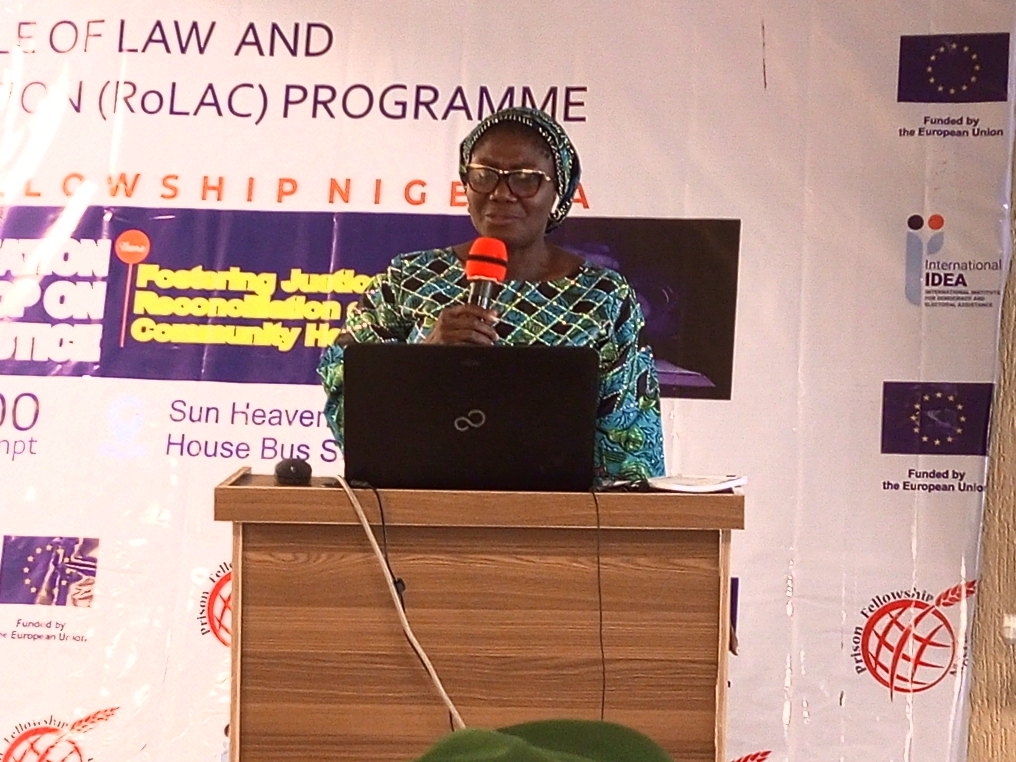
Mrs. Kombo-Ezeh said what is needed in Abia is a bill that will entrenching it into the criminal justice system and have a practice direction and others that will give guidance to it.
She also added that for it to have resultant effect, it should be a collaborative effort from Stakeholders beginning with police.
”The police has a role to play by reducing the number of people they charge to the court, reduce the number of people they throw inside the cell, restorative justice is Justice with love. Mrs Kombo-Ezeh said.
The workshop climaxed with questions and answer section which turned very interactive and educative.
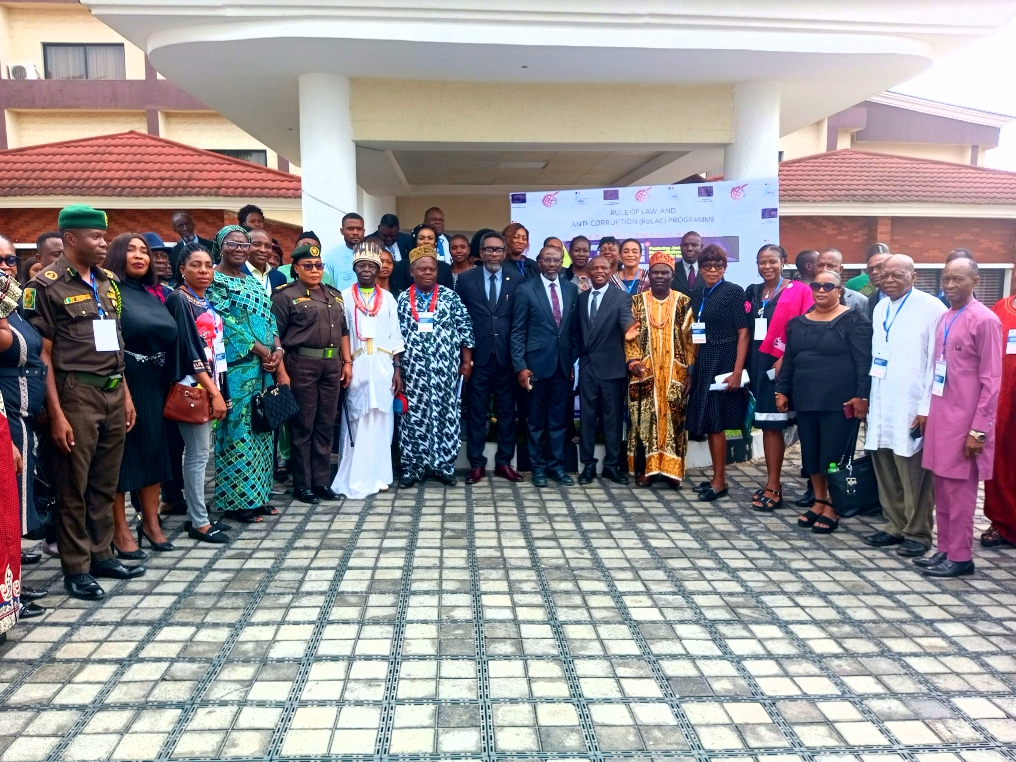
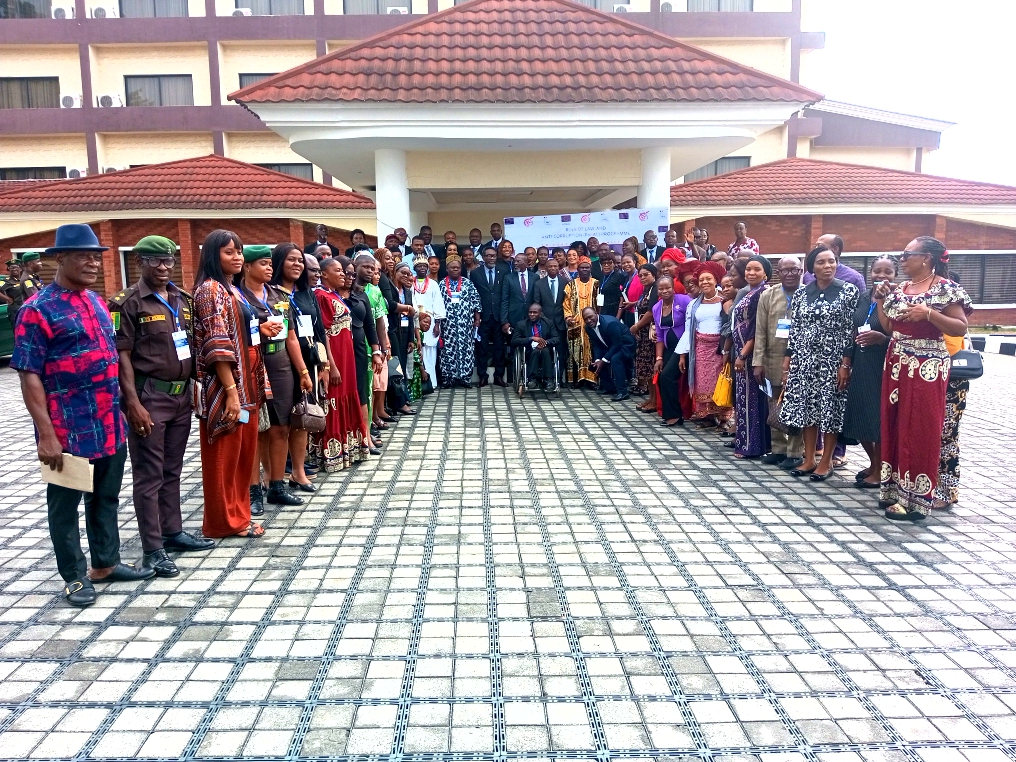
Disclaimer: Candid Reporters publishes news, information, sports, opinions, and Interviews. The site includes both reported and edited content. Unmoderated posts and Comments expressed here do not reflect the opinions of Candid Reporters or any employee thereof..


